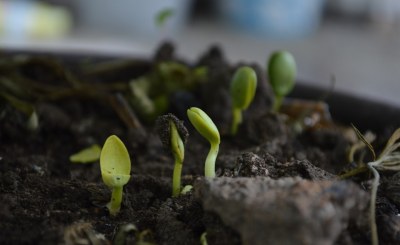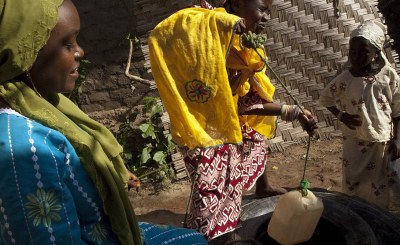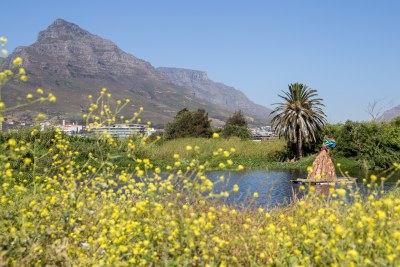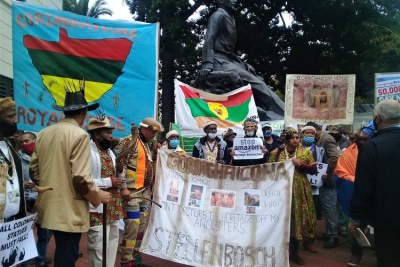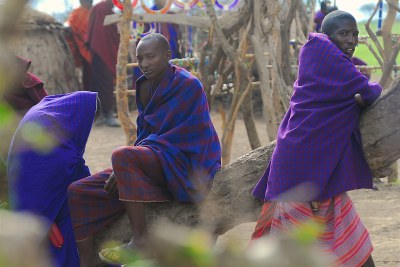-
Africa: When Capitalism and Indigenous Rights Collide
DW, 21 April 2022
A legal dispute involving retail giant Amazon and Indigenous South Africans has highlighted a global dilemma: Are sacred sites more important than job creation? Indigenous groups… Read more »
-
Thomson Reuters Foundation, 12 November 2021
Carbon markets rules set to be decided in Glasgow lack protections to stop abuses of indigenous forest communities, human rights experts warn Read more »
-
Cameroon: Indigenous People Say Rebels Kill, Deprive Them of Education and Livelihood
VOA, 9 August 2021
In Cameroon, thousands of Pygmies, Mbororo and Kirdis, considered indigenous people, are protesting against the country's Anglophone separatists on August 9, World Indigenous… Read more »
-
West Africa: Indigenous Peoples Cry for Protection - As Human Rights Defenders Zoom On West Africa
FrontPageAfrica, 15 April 2021
Grassroots Frontline Environmental, Land and Human Right Defenders in West Africa convened from 29 - 31 March 2021, to discuss the situation affecting their work by way of the zoom… Read more »
-
Africa: Amid Coronavirus, Let's Not Forget About Indigenous People
Thomson Reuters Foundation, 20 April 2020
Indigenous communities play a critical role in preventing the emergence of diseases and must be involved in the response to the pandemic Read more »
When Capitalism and Indigenous Rights Collide in Africa
A legal dispute involving retail giant Amazon and Indigenous South Africans has highlighted a global dilemma: Are sacred sites more important than job creation? Indigenous groups have been fighting back, writes Silja Fröhlich for Deutsche Welle.
Indigenous Khoi and San people went to court to block the construction of the planned African headquarters for online retail giant Amazon. Opponents say the project will ruin a historically significant riverside site in Cape Town and harm the environment. The development was under construction on sacred land, the spiritual home to the Khoi and San ethnic groups.
South African President Cyril Ramaphosa has been seeking to woo foreign investment to create job opportunities. However, Genevieve Rose, head of the African Commission on Human and Peoples' Rights (ACHPR) has said that it "should not happen at the expense of Indigenous peoples." The only thing Indigenous peoples would ask for, Rose said, is for their rights to the land where the development is taking place to be recognized and that they are given proper consideration.
Similar scenarios have happened elsewhere in Africa. For example, in the 1970s, the Kenyan government evicted hundreds of Endorois families from their land to create a wildlife sanctuary for tourists.
In a historic ruling in 2021, the Kenyan Environment and Land Court in Meru declared the title deeds to the land on which the LTWP stands "irregular and unlawful." Indigenous people had complained that the wind energy project did not obtain consent, did not pay adequate compensation and violated applicable land laws.
Batwa land has also been converted into national parks and forest reserves against their will in Burundi and Uganda. And in Ethiopia, pastoralist peoples were forced off their land so foreign and national companies could lease it.
InFocus
-
The Goringhaicona Khoi Khoin Indigenous Traditional Council (GKKITC) has filed an interdict against Amazon's ongoing construction development in Cape Town along the Liesbeek River Read more »
-
The U.S.$301 million development at the River Club site in Observatory, Cape Town has been stopped, with a court ruling that the developers must "consult meaningfully" with a Read more »
-
More than one thousand community members in Northern Tanzania have gathered to protest against the government's plan to evict people of Loliondo from their ancestral land. ... Read more »
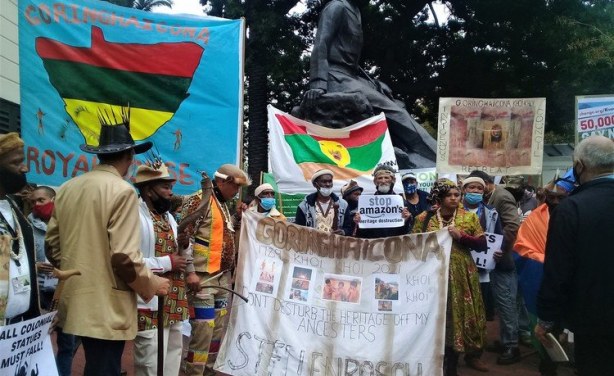
About 100 people marched through Cape Town city centre to deliver a petition with 50,000 signatures objecting to the proposed Amazon development at the Two Rivers Urban Park.
